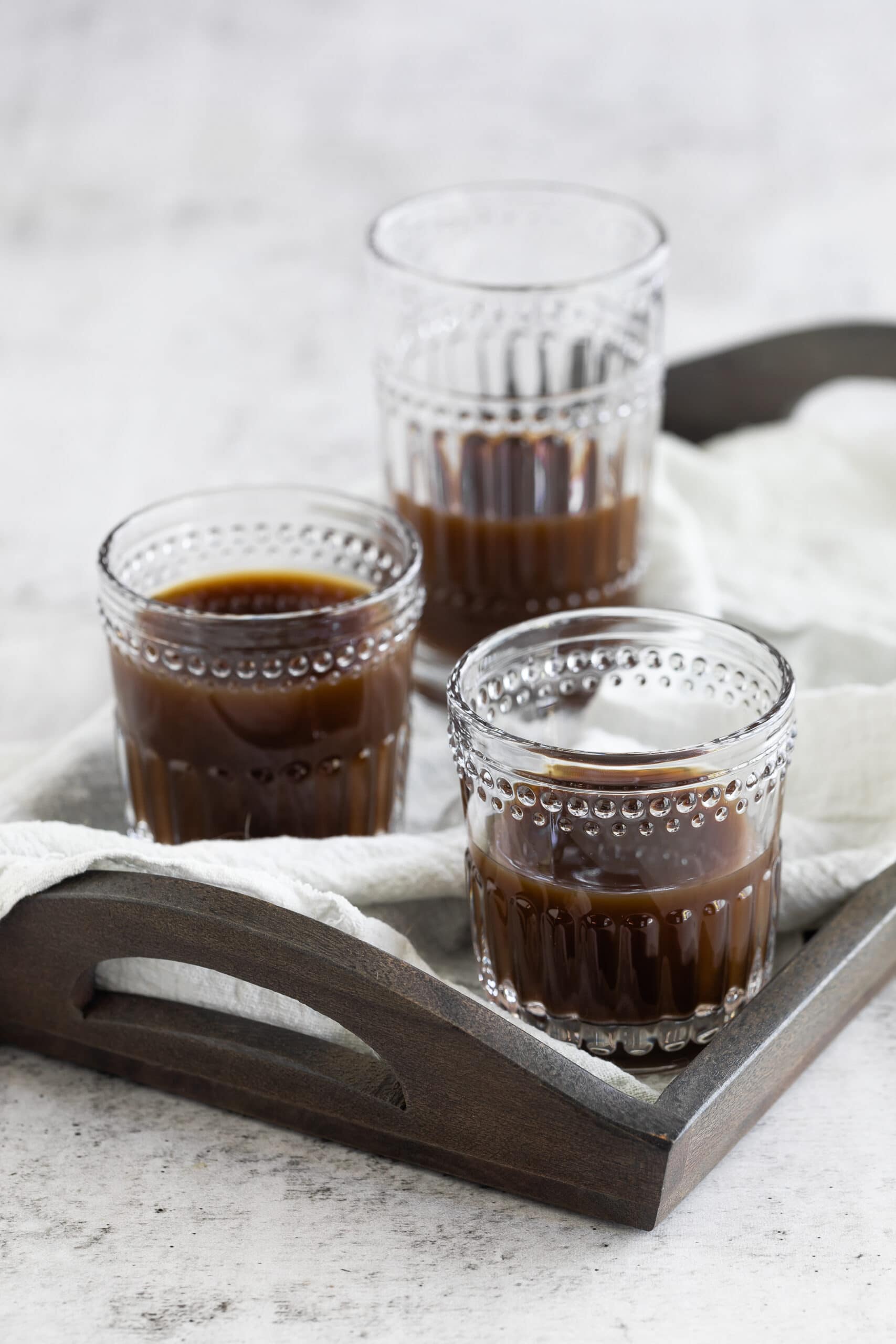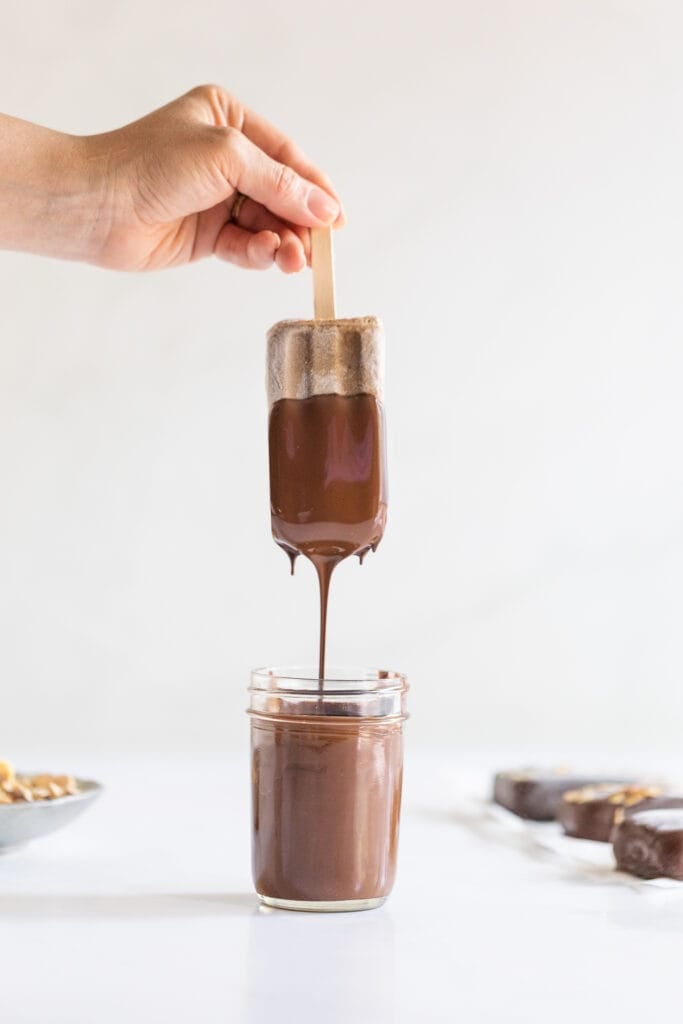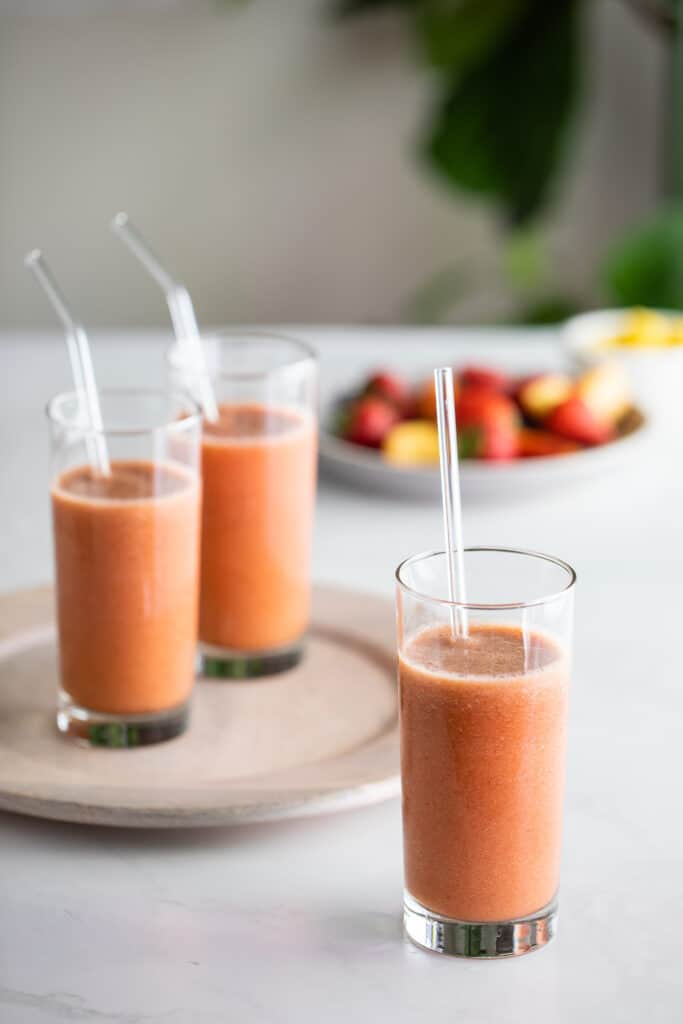
Prune Juice: A Nutritional Elixir for Digestive Health
Prune juice, made with dried plums or prunes, has always been popular as a natural remedy for various digestive ailments. Beyond a sweet and tangy taste, this juice has numerous recognized health benefits including positive effects on digestion, bone health, and heart health.
Nutritional Composition
Prune juice is a concentrated source of essential nutrients and is packed with dietary fiber, vitamins, minerals, potassium, and antioxidants. A single cup contains approximately 176 calories, 43 grams of carbohydrates, 1.5 grams of protein, and is fat-free. It also has 3 milligrams of iron, the highest of any fruit juice.
Additionally, prune juice is a good source of fiber, playing a crucial role in the maintenance of digestive health by promoting regular bowel movements and preventing constipation. It contains both soluble and insoluble fiber, which aid in softening the stool and facilitating passage through the intestines. Plus, the natural laxative effect in prune juice can alleviate discomfort associated with constipation and promote a healthy gut.
Positive Effects on Digestion
Packed with nutrients and fiber, prune juice has long been recognized for its positive impact on digestion and as a gentle and natural laxative that helps relieve constipation and regulate bowel movements. But this juice also contains sorbitol, a sugar alcohol known for its osmotic properties. This compound helps maintain regular bowel movements and attracts water into the colon, thus mitigating the risk of constipation. Even more desirable, sorbitol is a sugar alcohol that is slowly absorbed by the body which means it does not have the same effect on blood sugar as sugars.
Prune juice also stimulates the release of digestive enzymes, aiding in the breakdown of food and the absorption of nutrients. Additionally, the phenolic compounds and antioxidants seem to have anti-inflammatory properties, which may reduce the risk of gastrointestinal disorders and improve overall gut health.
FAQ About Prune Juice
How long after prune juice will I poop?
Most people will have a bowel movement about 1-3 hours after drinking 4-8 ounces of juice.
Is prune juice a laxative or stool softener?
It’s both! It not only moves stool through your body more quickly, but the sorbitol also brings more water into the colon making stool softer and easier to pass. Studies show that in most cases, it can be more effective than other laxatives.
Is it OK to drink prune juice every day?
It’s ok for adults to drink 4-8 ounces daily.
What is the best time to drink prune juice for constipation?
Dietitian Leslie Bonci recommends sipping it before bed to allow it a chance to work overnight.
Maintaining Overall Well-being
Beyond positive effects on digestion, prune juice offers several other health benefits that contribute to overall well-being.

First, the antioxidants, which include phenolic compounds, may help neutralize harmful free radicals in the body. This antioxidant activity aids in reducing inflammation and protecting cells from oxidative stress, potentially reducing risk factors for chronic diseases such as heart disease and osteoporosis.
In addition to antioxidants, it is a source of essential vitamins and minerals. It contains significant amounts of vitamin C, vitamin K, potassium, and iron. It also boasts magnesium, B vitamins (vitamin B-6, riboflavin, niacin, pantothenic acid) and manganese. Vitamin C helps to strengthen the immune system, promote collagen synthesis, and support wound healing. Vitamin K plays a crucial role in blood clotting. Potassium is essential for maintaining healthy blood pressure and proper muscle function. Iron is vital for red blood cell production and preventing iron deficiency anemia.
Why is it called prune juice and not plum juice?
The term “prune juice” is used instead of “plum juice” because the juice is extracted from dried plums rather than fresh plums. The drying process changes the texture, flavor, and nutritional composition of the fruit, making prune juice different from plum juice.
How long does prune juice last in the fridge?
Like other juices, once opened, this juice does have a shelf life when stored in the refrigerator. While the exact duration can vary depending on various factors, a general guideline is that the shelf life is about 7 to 10 days when properly refrigerated.
If you’re unsure about the freshness of prune juice or have concerns that it has been stored for an extended period, it’s advisable to discard it and use a fresh bottle.
Can you put prune juice in a smoothie?
Yes, adding it to a smoothie can make it both delicious and nutritious. It adds natural sweetness, fiber, and a unique flavor profile to your smoothie creations like this Tropical Prune Juice Smoothie.
Does prune juice taste good?
Taste is obviously subjective and varies from person to person. Prune juice has a unique flavor profile often described as sweet, tangy, and slightly tart. It has a rich, fruity taste with earthy undertones.
Many people enjoy this flavor profile and find it pleasant, particularly if they appreciate the natural sweetness of dried prunes. The flavor can be reminiscent of prunes themselves, but if you find the taste too intense, you can always dilute it with water or mix it with other fruit juices to balance the flavors. Try combining prune juice with apple juice or blending prunes into smoothies with other fruits to create a palatable and enjoyable beverage.



What to do with prune juice?
Beyond drinking it straight up, you can use this juice in various other ways. Here are some ideas:
- Smoothies: Prune juice can be a flavorful addition to your smoothie creations. Combine it with other fruits, vegetables, and a liquid base like almond milk or yogurt for a nutritious and delicious smoothie.
- Baking: It can be used as a natural sweetener and moisture enhancer in baked goods. You can substitute it for some or all of the liquid ingredients in recipes such as muffins, cakes, and bread. It can add a rich, fruity flavor to your baked treats.
- Sauces and dressings: Incorporate prune juice into sauces and dressings to add depth and sweetness. It works beautifully in barbecue sauces, marinades, or salad dressings to enhance the flavor profile of your dishes.
- Marinades and glazes: It is a great base for marinades and glazes for meats or roasted vegetables. The natural sweetness and tanginess can add depth and flavor to your dishes. Plus, it contains natural phosphates – the very thing competitive BBQ folks inject into their meat to retain moisture and create a tender product.
- Frozen treats: Freeze prune juice into ice cubes or popsicles for a refreshing and healthier dessert option. You can also blend it with frozen fruits to create homemade sorbets or fruit-based ice creams.
- Poaching fruits: Use it as a poaching liquid for fruits like pears or apples. Simmer the fruits in prune juice along with spices like cinnamon or star anise for a flavorful and lightly sweetened dessert.
- Cocktails and mocktails: Prune juice can be a unique ingredient in cocktails or mocktails. Combine it with other juices, sparkling water, or spirits to create inventive and flavorful drinks.
More facts:
Prune juice has a natural sweetness and nutritional benefits that make it a versatile ingredient in various culinary creations.
It is a delicious beverage that helps to promote overall health and well-being. Its fiber content, laxative properties, and antioxidant compounds make it a valuable addition to a balanced diet. Regular consumption can aid in preventing and/or resolving constipation, maintaining regular bowel movements, and potentially reducing risk factors for chronic diseases. As always, we recommend consulting with a healthcare professional, such as a registered dietitian, before making any significant changes to your diet or before incorporating prune juice to alleviate specific digestive issues.